How Canada’s backyard ultra stars brace for sleep starvation
Success in the competition demands enduring long days and nights on little to no shut-eye, but is that something you can actually prepare for?
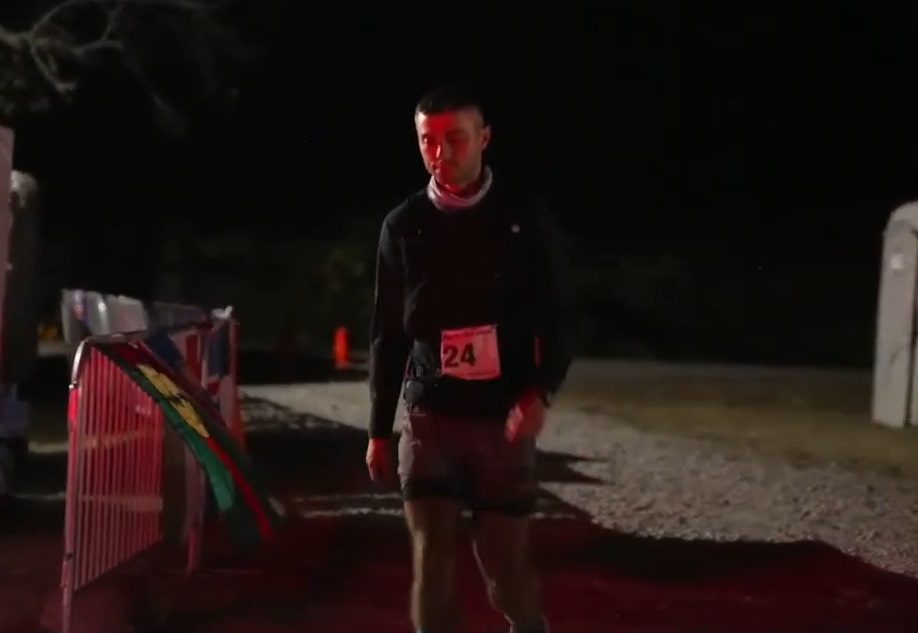 Photo by:
youtube.com/@conversationsbythewoodpile
Photo by:
youtube.com/@conversationsbythewoodpile
As Big’s Backyard Ultra World Championship in Bell Buckle, Tenn., pushes tantalizingly closer to the world record of 102 yards held by Australia’s Phil Gore, the mental and physical grind facing the race’s remaining competitors becomes ever more inconceivable. One of the most daunting aspects of the race format for many competitors is the sleep starvation that success at the top level of the backyard ultra demands. Having to complete 6.706-km “yards” (loops) every hour on the hour leaves runners with precious few opportunities for sleep—chances that become increasingly scarce as paces slow over the race.
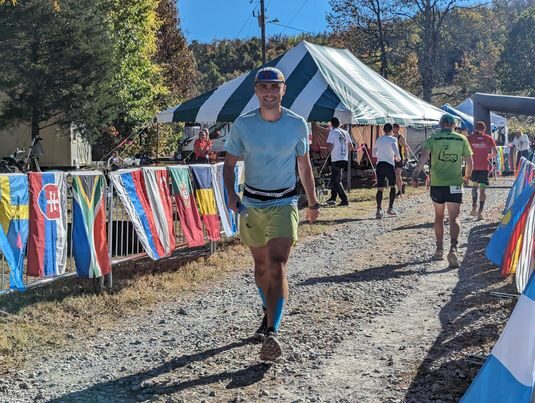
While backyard ultra competitors can prepare themselves to meet many of the challenges they’ll face during the race—training their legs to tackle the mileage, or their stomachs to handle the massive amounts of calories needed to fuel their runs—is it possible to also train for sleep deprivation? The three Canadians who toed the start line at Big’s last Saturday morning weighed in on their battles with the Sandman and on their strategies for dealing with sleep starvation on the backyard ultra course.
Ihor Verys
The last Canadian still in the running at Big’s, as of 11 a.m. ET on Monday, Ihor Verys has long eclipsed his previous record of 67 yards—just under 450 km—and will have completed at least 99 yards, totalling more than 660 km.
While Verys acknowledged that lack of sleep does present a greater challenge as the race rolls on, he said he’s fortunate that sleep starvation isn’t one of the bigger obstacles for him as a backyard ultra runner.
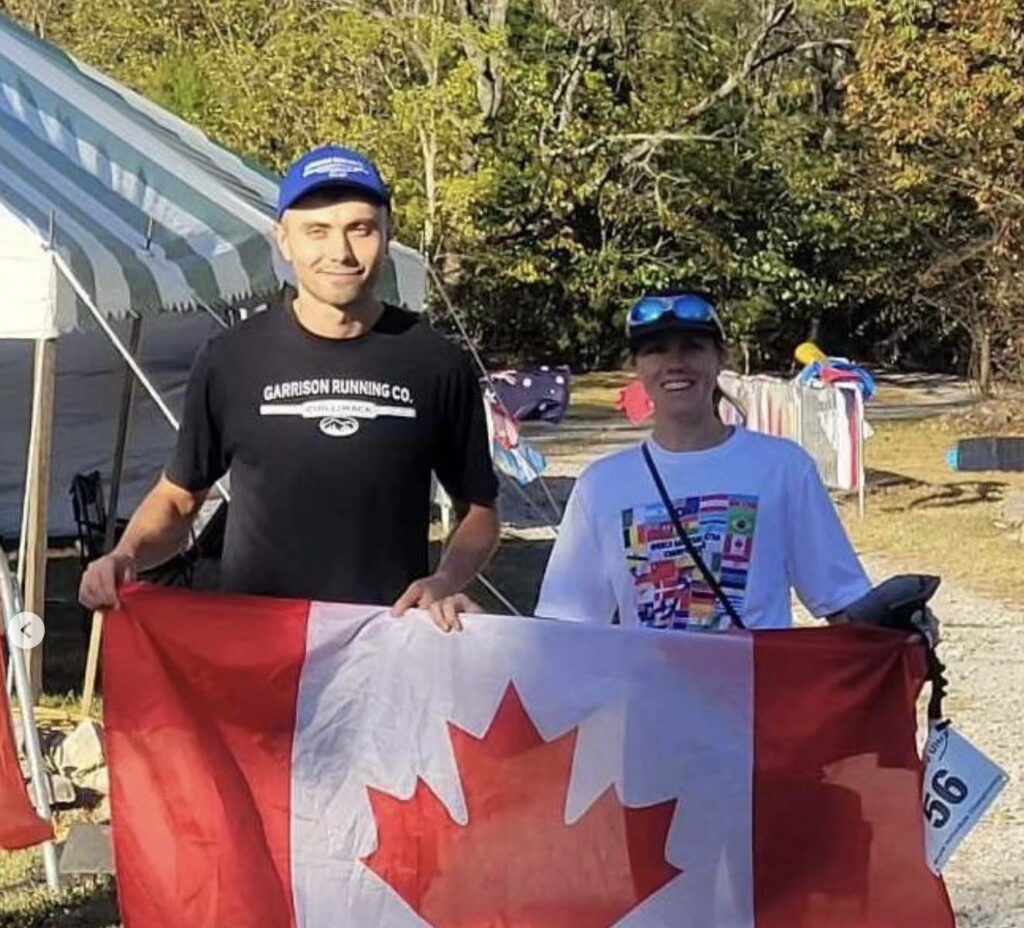
“I don’t find sleep deprivation a very challenging part,” he said before the race. “I mean, it is hard for sure, but I find I’m capable of pushing through. Granted, I’ve done 67 hours, so I’ve never gone through the fourth night, for instance. I’m curious to know how my body would deal with that.
“I don’t do anything specific for the backyard to be honest,” Verys said of his training plan. “I do some speedwalk sessions, for sure, but most of the time it’s just regular training, as I would do for a conventional ultra.”
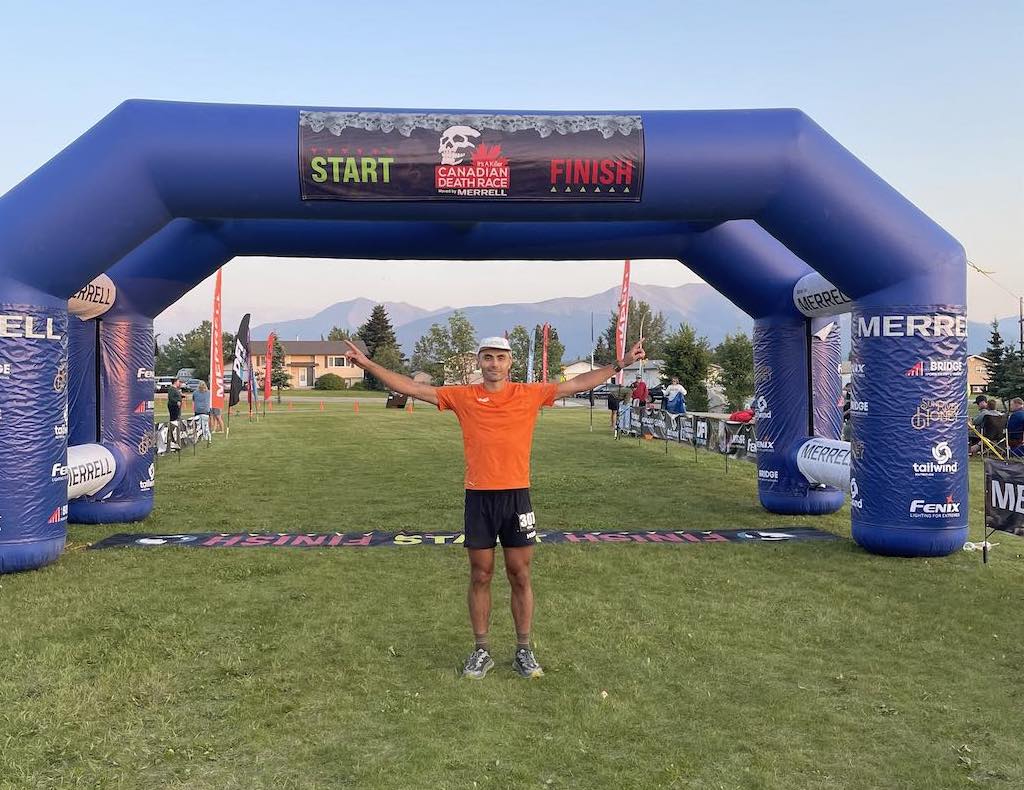
He added a greater challenge than sleep deprivation for him is pain and injury management.
“I think the hardest part for me is managing those injuries, making sure that they’re not flaring up, if you have some hot spots you deal with them right away and thankfully we see an aid station every hour and can do so.”

Eric Deshaies
A veteran ultrarunner from Gatineau, Que., Eric Deshaies racked up his personal best of 66 yards—just over 442 km—at last year’s Backyard Ultra World Team Championships. He was the last Canadian standing at the 2021 individual world championships in Tennessee, where he finished 50 yards (335 km). Deshaies put out a strong effort at Big’s over the weekend, racking up 36 yards—more than 241 km—before turning back after starting his 37th loop.
Deshaies told Canadian Running in the final days leading up to Big’s that his training has focused on Backyard ultra competitions almost exclusively for the past three years, and that sleep-deprivation training certainly has played a part in his regimen. “I run many short runs during the week,” he said, noting that he tries “to run sleep deprived or with very tired legs.”
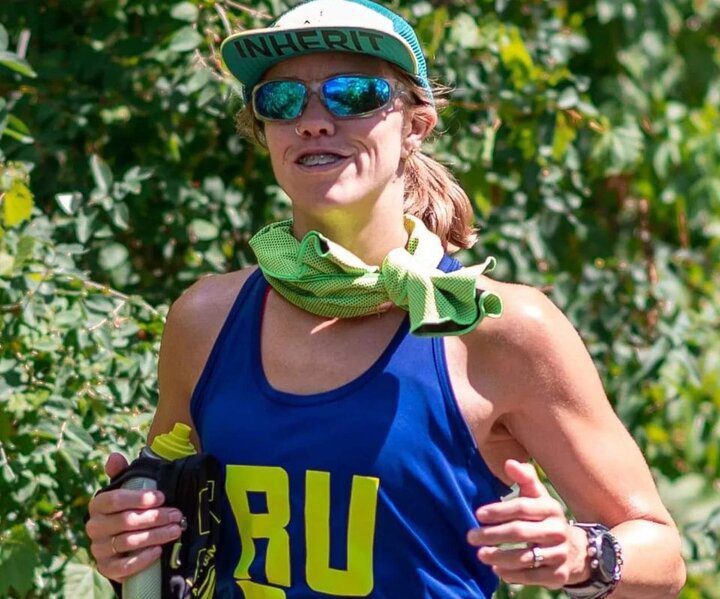
Amanda Nelson
As it is with Deshaies, sleep deprivation is something Nelson has incorporated into her training for backyard ultras. The Woodstock, Ont., runner holds the women’s 12-hour Canadian record (135.072 km), the 100-mile Canadian record (14:45:51) and the 24-hour Canadian record (248.985 km).
At Big’s, she broke her own Canadian women’s backyard ultra record by completing 57 yards—more than 382 km. Unable to stand to begin her 58th yard, Nelson had reached her physical limit. In comments before the race, she noted she wanted to make sure she didn’t give up mentally while she was still physically capable of continuing, and that training to be sleep starved was part of building that mental resilience.
“I’ll wake up in the middle of the night and do four to six loops–and just be tired for three days in a row, so that I’m only getting two, three, four hours of sleep … I’m tired when I’m doing them, and then I’ll practise trying to rest in between them,” she said.
“When you start getting tired, your mind plays tricks on you. It tries to get you to stop when physically you know you can still keep going. Sometimes it’s a hard battle.”
How to follow the action at Big’s
For the official site, click here. There are several ways to follow the action, which began Saturday at 8 a.m. ET (7 a.m. local time): there’s a public Facebook group (click here), a livestream (click here, and keep watching past the preview), and you can follow Canadian Running on X (formerly Twitter)–click here.

